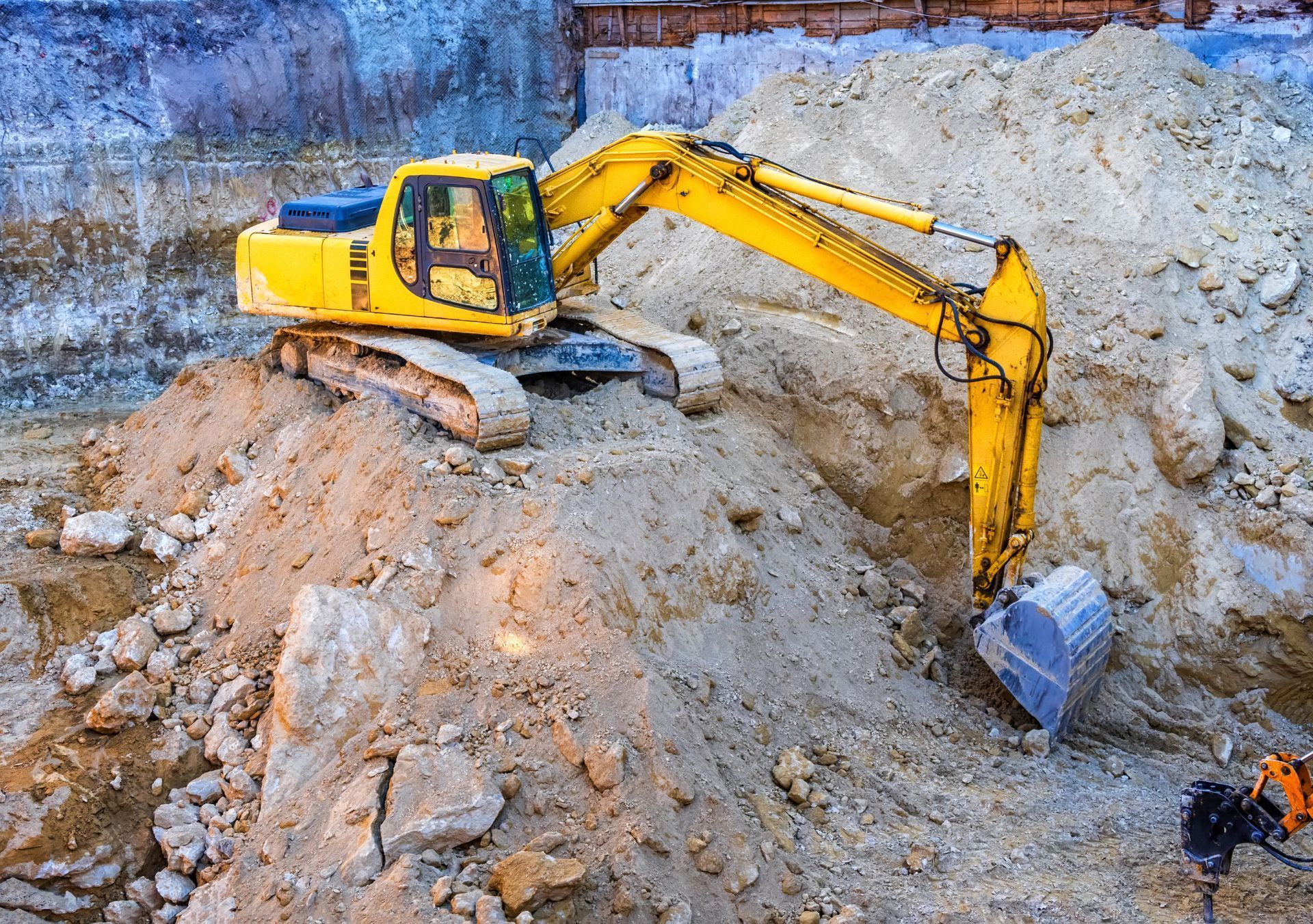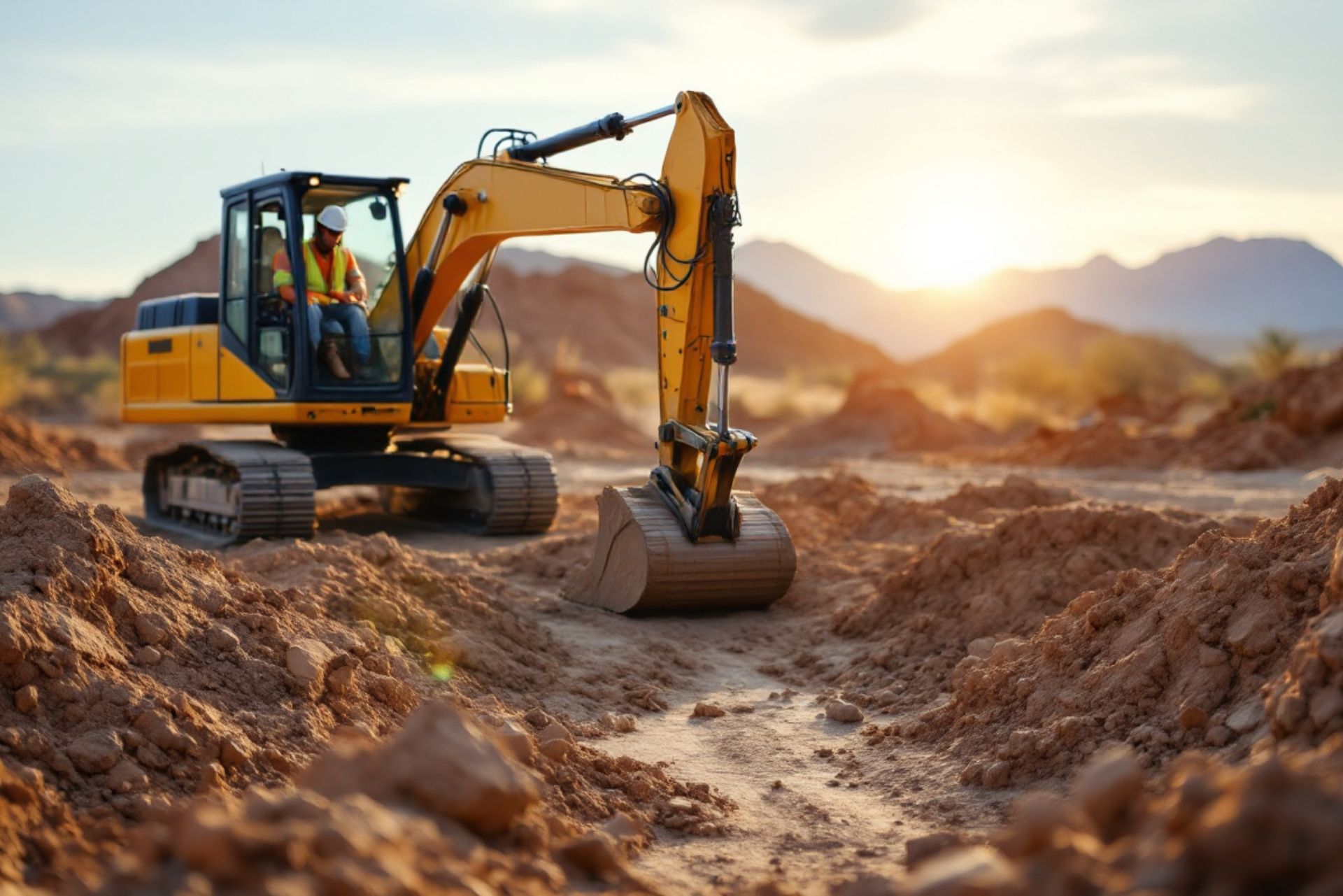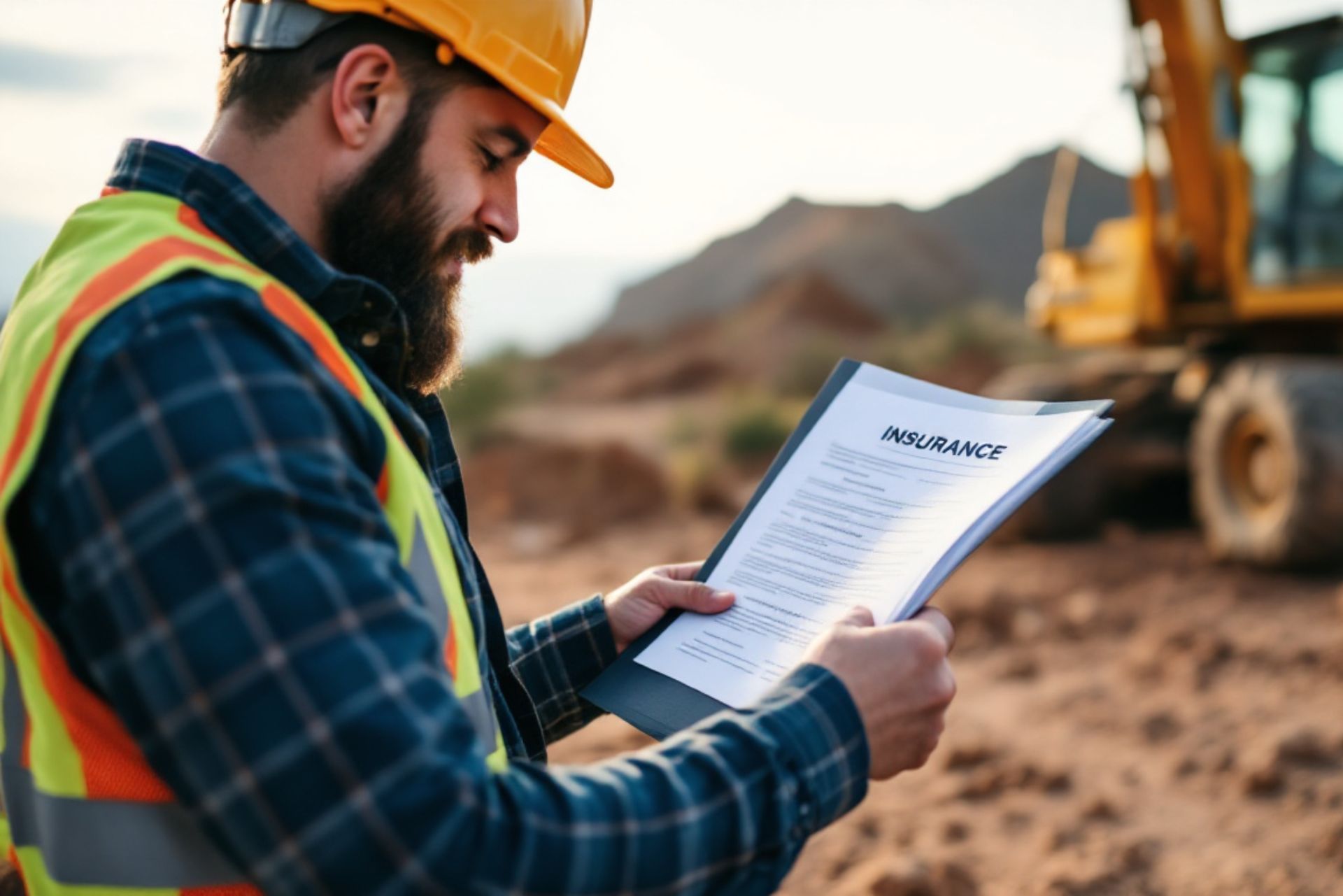Arizona Excavation Contractor Insurance
See How We're Different:
or Call Us:(480) 526-3222

Most Common Business Policies
Index
Understanding Excavation Contractor Insurance
Legal Requirements for Excavation Contractors in Arizona
Choosing the Right Insurance Provider
Cost of Excavation Contractor Insurance
Claims Process for Excavation Contractor Insurance
Common Risks Faced by Excavation Contractors
Contact Us
Excavation contractors play a vital role in construction projects, providing essential services that lay the groundwork for buildings, roads, and other infrastructures. However, the nature of excavation work comes with inherent risks and liabilities. This is where excavation contractor insurance becomes crucial. Understanding the types of insurance available, their importance, and how to navigate the insurance landscape in Arizona is essential for any excavation contractor. This article aims to provide a comprehensive overview of excavation contractor insurance in Arizona.
Understanding Excavation Contractor Insurance
Excavation contractor insurance is a specialized form of coverage designed to protect contractors from various risks associated with excavation work. This insurance typically includes several types of coverage, each addressing different aspects of the business. It is essential for contractors to understand these options to ensure they are adequately protected.
Types of Coverage
There are several key types of insurance coverage that excavation contractors should consider:
- General Liability Insurance: This coverage protects against claims of bodily injury or property damage that occur during the course of business operations. For example, if a worker accidentally damages a client's property while operating machinery, this insurance can cover the costs.
- Workers' Compensation Insurance: This insurance is mandatory in Arizona for businesses with employees. It provides coverage for medical expenses and lost wages if an employee is injured on the job.
- Commercial Auto Insurance: Excavation contractors often use vehicles to transport equipment and personnel. Commercial auto insurance covers vehicles used for business purposes, protecting against accidents and damages.
- Equipment Insurance: This coverage protects the heavy machinery and tools used in excavation work. It can cover theft, damage, or loss of equipment.
The Importance of Insurance for Excavation Contractors
Having the right insurance is not just a legal requirement; it is a critical component of a contractor's risk management strategy. The excavation industry is fraught with potential hazards, from accidents involving heavy machinery to unforeseen site conditions. Without adequate insurance coverage, a contractor could face significant financial losses.
Moreover, clients often require proof of insurance before hiring a contractor. Having comprehensive insurance can enhance a contractor's credibility and help secure more contracts. It demonstrates professionalism and a commitment to safety and responsibility.
In addition to the standard coverages, excavation contractors may also want to explore additional policies such as pollution liability insurance, which can protect against claims arising from environmental damage caused by excavation activities. This is particularly relevant for contractors working in urban areas or near sensitive ecosystems, where the risk of contaminating soil or water sources is heightened. Furthermore, considering an umbrella insurance policy can provide an extra layer of protection, extending coverage limits beyond standard policies and safeguarding against catastrophic losses that could threaten the business's viability.
Understanding the nuances of excavation contractor insurance can also lead to better financial planning. By assessing the specific risks associated with their projects, contractors can tailor their insurance packages to suit their unique needs. This proactive approach not only helps in minimizing potential liabilities but also allows contractors to allocate resources more effectively, ensuring that they can invest in quality equipment and skilled labor while maintaining a safety net against unforeseen events.

Legal Requirements for Excavation Contractors in Arizona
In Arizona, excavation contractors must comply with specific legal requirements regarding insurance. Understanding these requirements is crucial for operating legally and avoiding penalties.
Workers' Compensation Insurance
As mentioned earlier, workers' compensation insurance is mandatory for all employers in Arizona with one or more employees. This insurance provides essential protection for workers who may suffer injuries while on the job. Failure to carry this insurance can result in severe penalties, including fines and legal action. Additionally, having this coverage not only safeguards employees but also enhances the contractor's reputation, as it demonstrates a commitment to workplace safety and employee welfare. In the event of an accident, workers' compensation can cover medical expenses, rehabilitation costs, and lost wages, ensuring that employees receive the support they need during recovery.
General Liability Insurance
While
general liability insurance is not legally required in Arizona, it is highly recommended. Many clients will request proof of general liability insurance before awarding contracts. This coverage protects contractors from claims related to accidents or damages that occur during the course of their work. Furthermore, general liability insurance can also cover legal fees in the event of a lawsuit, providing an additional layer of financial security. In a state like Arizona, where excavation projects can involve significant risks due to varying terrain and environmental conditions, having this insurance can be a deciding factor for clients when selecting a contractor. It not only protects the contractor's assets but also fosters trust and confidence in potential clients, which can lead to more business opportunities.
Choosing the Right Insurance Provider
Selecting the right insurance provider is a critical step for excavation contractors. Not all insurance companies offer the same coverage options or levels of service. Here are some factors to consider when choosing an insurance provider:
Experience and Specialization
It is essential to choose an insurance provider with experience in the construction and excavation industry. Specialized providers understand the unique risks associated with excavation work and can tailor coverage to meet specific needs. They are familiar with the types of machinery used, the potential hazards on job sites, and the regulatory requirements that govern excavation projects. This expertise can translate into more accurate risk assessments and better policy recommendations, ensuring that contractors are adequately protected against unforeseen events.
Coverage Options
Contractors should look for providers that offer a comprehensive range of coverage options. This includes not only general liability and workers' compensation but also specialized coverage for equipment and commercial vehicles. A provider that can bundle multiple policies may offer better value. Additionally, it's important to consider endorsements or riders that can enhance basic coverage, such as protection against environmental damage or coverage for subcontractors. Understanding the nuances of these options can help contractors avoid gaps in coverage that could lead to significant financial losses in the event of an accident or incident.
Customer Service and Support
Good customer service is vital when dealing with insurance. Contractors should seek providers that offer responsive support and guidance throughout the insurance process. This includes assistance with claims, policy changes, and any questions that may arise. A dedicated account manager can be invaluable, providing personalized service and ensuring that contractors feel supported at every step. Furthermore, many providers now offer online portals where contractors can easily access their policy information, submit claims, and track their status, making the process more efficient and transparent. This level of service not only fosters trust but also helps contractors focus on their core business without the added stress of navigating complex insurance issues.
Cost of Excavation Contractor Insurance
The cost of excavation contractor insurance can vary widely based on several factors, including the size of the business, the types of coverage selected, and the contractor's claims history. Understanding these factors can help contractors budget for their insurance needs. Additionally, it is crucial for contractors to be aware of the specific risks associated with excavation work, such as equipment failure, accidents on-site, and environmental liabilities, which can all influence insurance costs.
Factors Affecting Insurance Costs
- Business Size: Larger businesses with more employees and equipment typically face higher insurance premiums due to increased risk exposure. This is particularly true for contractors who operate multiple job sites simultaneously, as the potential for accidents or incidents increases with the scale of operations.
- Coverage Limits: Higher coverage limits generally result in higher premiums. Contractors should assess their risk exposure to determine appropriate coverage levels. It's also essential to consider the specific requirements of clients, as some may mandate higher limits before awarding contracts.
- Claims History: A contractor's claims history can significantly impact insurance costs. A history of frequent claims may lead to higher premiums. Conversely, a clean claims record can help secure lower rates, making it beneficial for contractors to maintain thorough documentation of their safety practices and incident reports.
Ways to Save on Insurance Costs
While insurance is a necessary expense, there are ways for excavation contractors to save on costs:
- Shop Around: Obtaining quotes from multiple insurance providers can help contractors find the best rates and coverage options. It's advisable to compare not just the premiums but also the policy terms, exclusions, and customer service ratings of different insurers.
- Bundle Policies: Many insurance providers offer discounts for bundling multiple policies, such as general liability and workers' compensation. This approach not only simplifies management but can also lead to significant savings over time.
- Implement Safety Programs: Demonstrating a commitment to safety can lead to lower premiums. Insurance companies may offer discounts to contractors with strong safety records and training programs. Investing in regular safety training and equipment maintenance can reduce the likelihood of accidents, thereby lowering overall insurance costs.
In addition to these strategies, contractors should also consider engaging with a knowledgeable insurance broker who specializes in construction and excavation. A broker can provide valuable insights into the nuances of the industry and help tailor a policy that meets specific business needs. Furthermore, staying informed about changes in regulations and industry standards can also play a crucial role in managing insurance costs effectively. By proactively addressing potential risks and maintaining open communication with insurers, excavation contractors can not only save money but also enhance their overall operational efficiency.

Claims Process for Excavation Contractor Insurance
Understanding the claims process is crucial for excavation contractors. In the event of an incident, knowing how to file a claim and what to expect can alleviate stress and ensure a smoother resolution.
Steps to File a Claim
- Report the Incident: As soon as an incident occurs, it should be reported to the insurance provider. This includes accidents, injuries, or property damage.
- Document the Details: Collect all relevant information, including photographs, witness statements, and any other documentation that can support the claim.
- Complete the Claim Form: The insurance provider will require a claim form to be filled out. This form will ask for details about the incident and any damages incurred.
- Follow Up: After submitting the claim, it is essential to follow up with the insurance provider to ensure the claim is being processed.
What to Expect During the Claims Process
The claims process can vary in duration depending on the complexity of the incident. Generally, the insurance company will conduct an investigation, which may involve interviews and site visits. Contractors should be prepared to provide any additional information requested during this time.
Once the investigation is complete, the insurance provider will determine the outcome of the claim. If approved, the contractor will receive compensation for covered damages or losses. If denied, the contractor has the right to appeal the decision.
Throughout this process, communication is key. Contractors should maintain open lines of communication with their insurance adjuster, who can provide updates and answer any questions. It’s also advisable to keep a detailed record of all interactions, including dates, times, and the names of individuals spoken to. This documentation can be invaluable if there are disputes or if further clarification is needed later on.
Moreover, contractors should familiarize themselves with their policy limits and exclusions before an incident occurs. Understanding what is covered can help set realistic expectations during the claims process. Additionally, some insurance providers may offer resources or support services to assist contractors in navigating the claims process, which can be beneficial in ensuring that all necessary steps are followed correctly and efficiently.
Common Risks Faced by Excavation Contractors
Excavation work comes with unique risks that can lead to accidents and liabilities. Understanding these risks is essential for contractors to implement effective safety measures and ensure adequate insurance coverage.
Site Hazards
Excavation sites can present various hazards, including unstable ground, underground utilities, and adverse weather conditions. Contractors must conduct thorough site assessments and implement safety protocols to mitigate these risks. For instance, soil testing is crucial to determine the stability of the ground before any excavation begins. Additionally, identifying the location of underground utilities, such as gas lines or electrical cables, is vital to prevent accidental strikes that could result in serious injuries or costly damages. Moreover, weather conditions can change rapidly, so having a contingency plan for heavy rain or extreme temperatures can help protect workers and equipment.
Equipment-Related Risks
Heavy machinery is a significant component of excavation work, but it also poses risks. Accidents involving equipment can lead to severe injuries or property damage. Regular maintenance and operator training are critical to minimizing these risks. Furthermore, the use of personal protective equipment (PPE) such as hard hats, gloves, and steel-toed boots is essential for safeguarding workers on-site. It is also important for contractors to ensure that all operators are certified and familiar with the specific machinery they are using. Implementing a strict protocol for equipment inspection before use can help identify potential issues that could lead to accidents, thereby enhancing overall safety on the job site.
Best Practices for Risk Management
To protect against the inherent risks of excavation work, contractors should adopt best practices for risk management. These practices can help reduce the likelihood of accidents and ensure compliance with safety regulations.
Implementing Safety Training Programs
Regular safety training for all employees is essential. Training should cover equipment operation, hazard recognition, and emergency response procedures. A well-trained workforce is better equipped to handle potential risks.
Conducting Regular Safety Inspections
Frequent safety inspections of equipment and job sites can identify potential hazards before they lead to incidents. Contractors should establish a routine inspection schedule and address any issues promptly.
Conclusion
Excavation contractor insurance is an essential component of running a successful excavation business in Arizona. Understanding the various types of coverage, legal requirements, and best practices for risk management can help contractors protect their businesses and employees. By investing in comprehensive insurance and prioritizing safety, excavation contractors can navigate the challenges of their industry with confidence.
In an ever-evolving construction landscape, staying informed about insurance options and risk management strategies is key to long-term success. Whether a contractor is just starting or looking to enhance their existing coverage, taking the time to understand excavation contractor insurance is a valuable investment in the future of their business.
